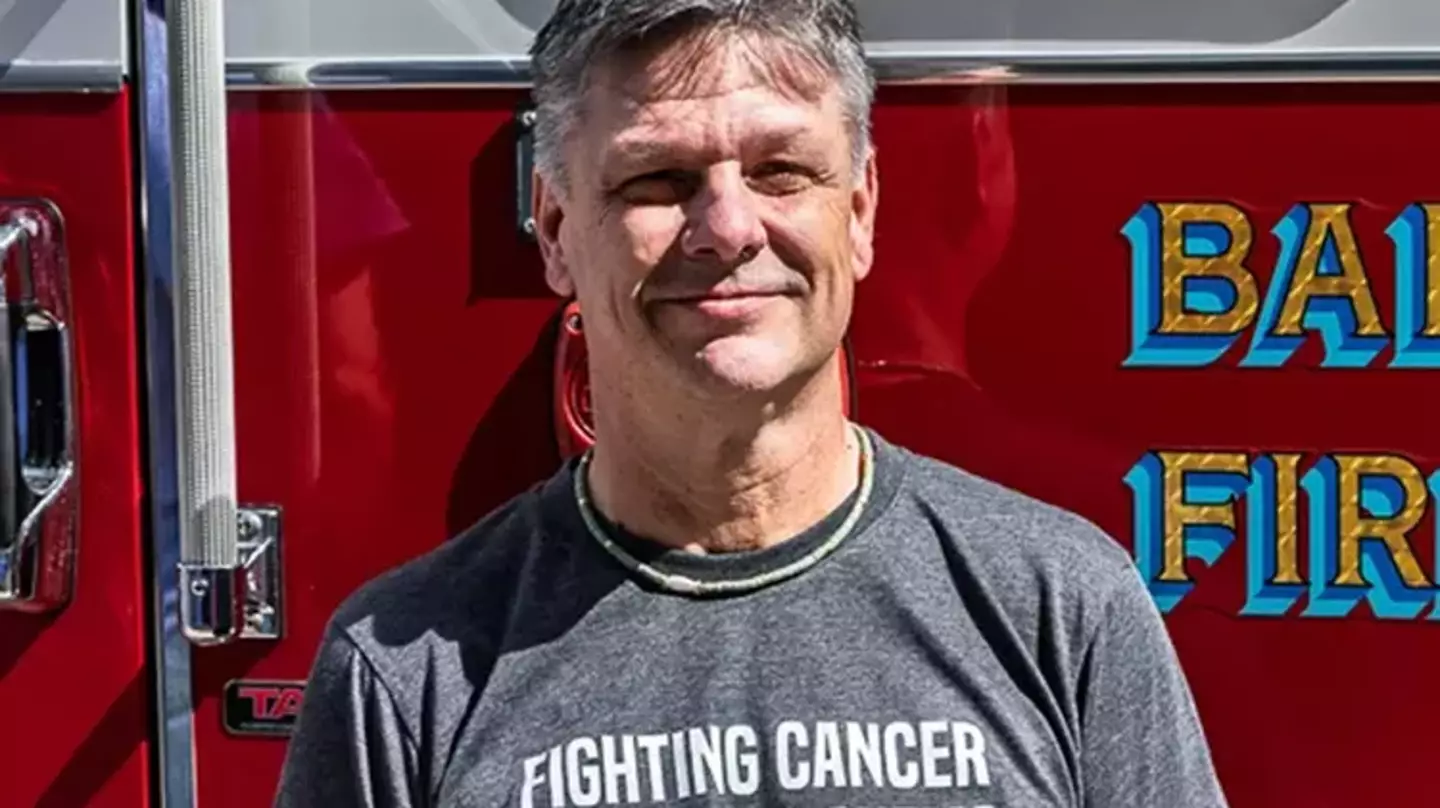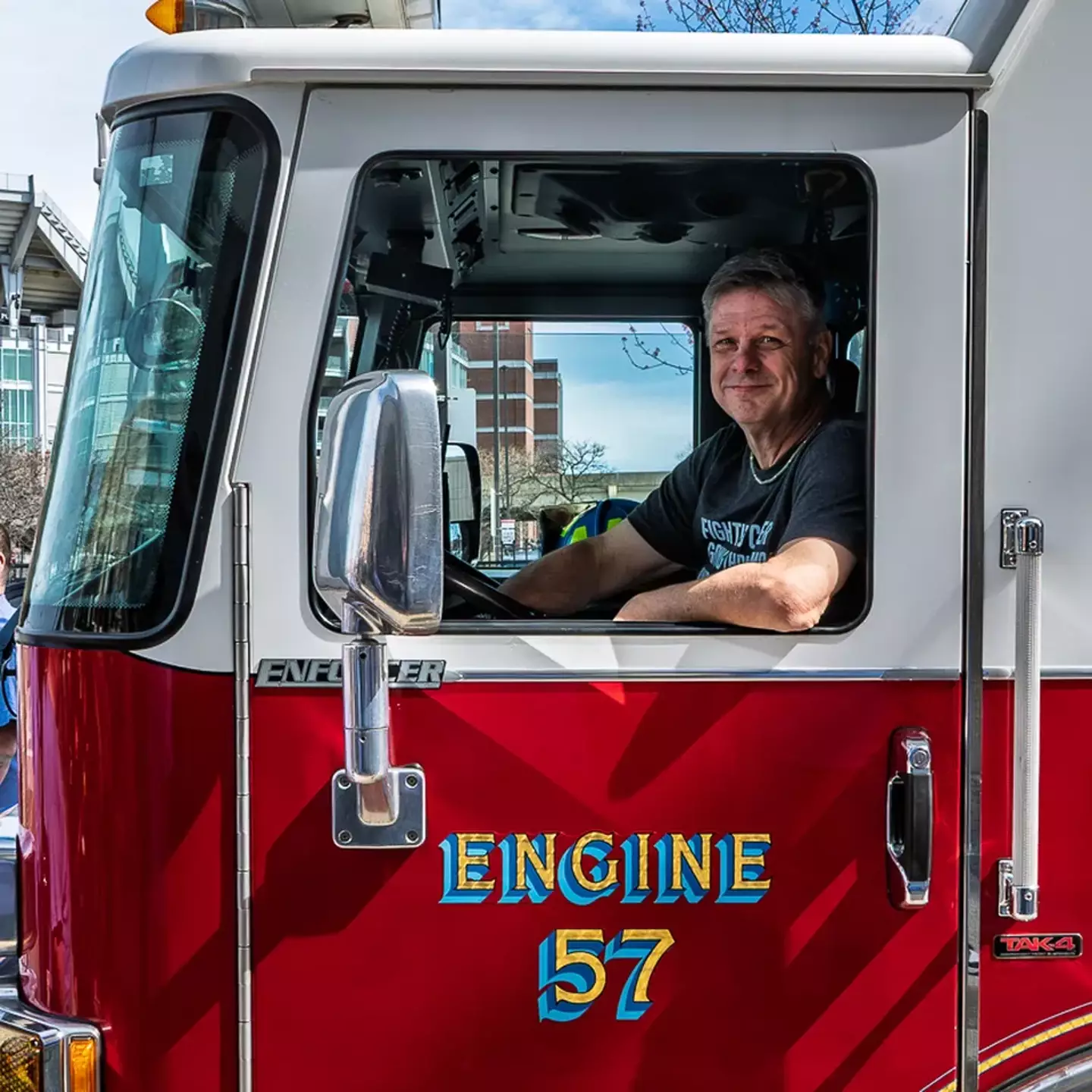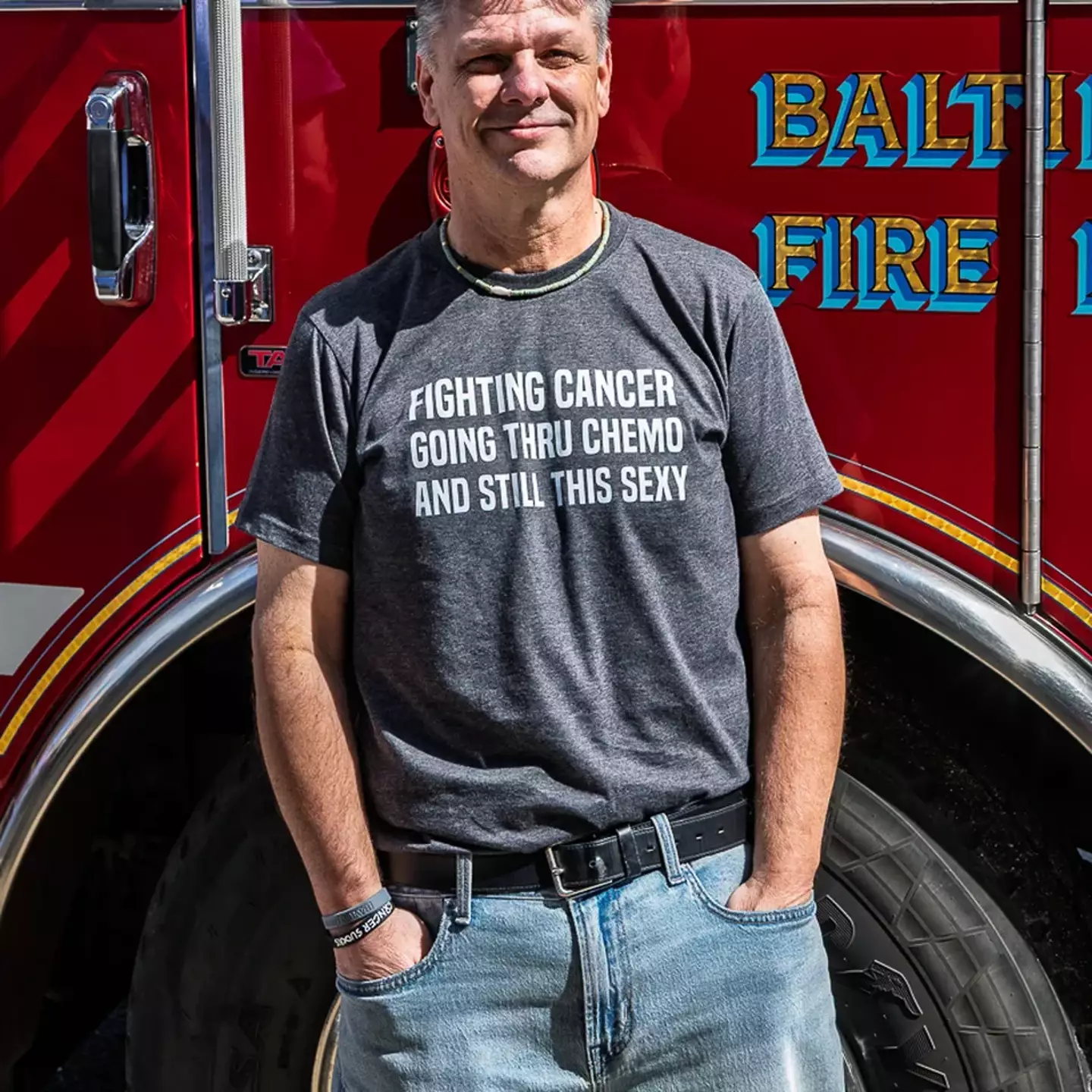
A firefighter battling stage 4 cancer has issued a warning for one common symptom that can go undetected.
Steve Dorsey has worked for the Baltimore City Fire Department for more than 20 years and was diagnosed with 'incurable' esophageal cancer on Valentine's Day this year.
The cancer has tragically spread to his lymph nodes and liver, meaning the the 56-year-old has gone on medical leave while undergoing chemotherapy in hopes of shrinking the tumors.
The aggressive cancer is often only detected in its advanced stages with the chances of survival beyond five years, particularly those in stage 4, considered low.
Advert
Now, Dorsey has spoken out about the 'benign' symptom he suffered earlier this year to warn others, particularly his fellow first responders, of the deadly signs.

Speaking to the New York Post, the father-of-four revealed he had routine checkups every six months with only high blood pressure being flagged as a concern.
That was until January when he said he started to struggle swallowing, saying the issue was 'very benign' in the beginning and that he could ease the difficulty by washing food down with fluids.
However, he said it 'progressively just started getting worse, where it was very difficult to eat anything, basically, without regurgitating it back up'.
While Dorsey claims his co-workers 'have been nothing but outstanding and supportive,' adding: "The love that I’ve gotten out of them has been amazing," he's urging fire departments across the US to establish routine life-saving testing.
He claims that the city recently agreed that his cancer is associated with his line-of-duty and now wants to see departments offer regular Lucid Diagnostics’ EsoGuard DNA tests, which detect abnormal esophageal cells before they progress into something sinister.
“My mission is to bring awareness to esophageal cancer [since firefighters have a] 63% higher [risk] than the general population. It’s right there with testicular cancer and mesothelioma,” Dorsey said. “And also bring awareness, too, that there is testing available."

According to The Firefighter Cancer Support Network, firefighters have almost a 40 percent increased risk of dying from esophageal cancer, which accounts for only one percent of all cancer cases in the US, as per the American Cancer Society.
While he loves the job, having followed in his father and grandfather's footsteps by having a career change at 35, he said he wished he was made aware of the health risks associated with it when he joined in 2004.
Firefighters endure inhaling toxic chemicals and smoke, all while battling extreme heat and loud noises, which together hikes the risk of respiratory illnesses, heart disease and cancer.
"When I came to the fire department in 2004, firefighters were only issued one set of turnout gear," he claimed, revealing that such poor protective gear can only exacerbate the problem.
"Changes have been made over the years,” the pump operator continued. “We’ve been issued a second set of turnout gear — the coat and the pants — and so after a fire, we actually send those in and they get laundered, and we switch into our second set of gear.”
“Firefighting is one of those jobs where you absolutely love the job,” he added. “I like to say being a firefighter in Baltimore City is the best job in the world and probably one of the worst places you can do it.”

As for his own health journey, Dorsey's chemotherapy is expected to go on until June, during which he will have follow-up CT scans to monitor his tumors.
"We’re hopeful that they’ve shrunk down, and if the chemotherapy and immunotherapies are successful in that, then we’ll just keep moving forward with that," he said.
However, it's anticipated his sick leave will turn into medical retirement with the grandfather-of-five noting he didn't 'expect it to happen this early or happen this way.'
Two fundraisers have since been set up to help chip away at Dorsey's medical expenses with more than $14,000 raised at the time of writing on his GoFundMe, which can be donated to here.